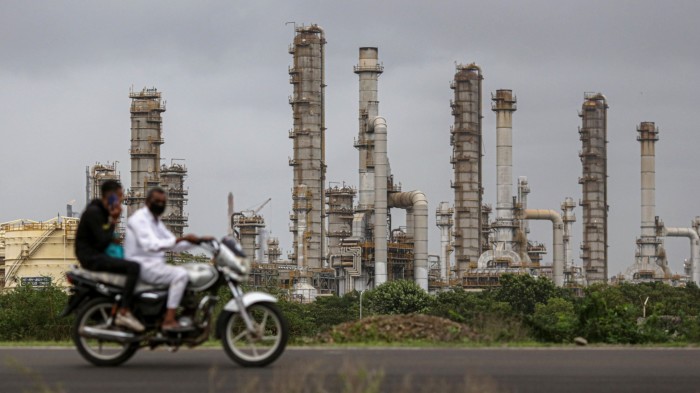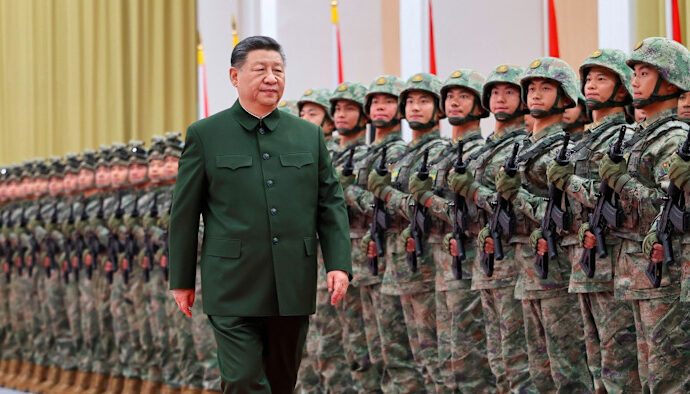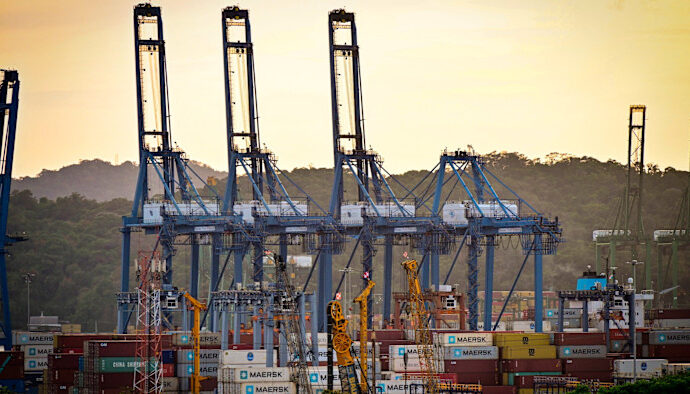
India’s top refiner is looking at halting oil purchases from its biggest Russian supplier, two people familiar with the company said, following Donald Trump’s sharp escalation of US sanctions on Moscow.
Reliance Industries said on Thursday it would “recalibrate” its imports in line with Indian government guidelines, as oil prices rose 5 per cent after the US measures against Russian groups Rosneft and Lukoil reverberated through global energy markets.
In response to questions about whether Reliance would stop importing from Rosneft, its biggest crude supplier, the people familiar with the Indian group, which operates the world’s largest refining complex, emphasised it did not import from entities under sanctions.
One of them added that Reliance was unlikely to “take a chance” that could result in punishment by the US. The US measures on Rosneft and Lukoil were announced only on Wednesday night.
Since the full-blown war in Ukraine started in 2022, India has become the biggest buyer of seaborne Russian crude, as sanctions pushed other buyers out of the market.
Trump has previously fiercely attacked India for the shift, imposing steep sanctions in an attempt to dissuade it from buying Russian oil.
One senior oil trader at a large commodities firm said they also expected Chinese oil majors to halt most of their seaborne Russian oil imports, though pipeline flows through China were likely to continue.
“There are a lot of meetings going on in China right now,” the senior trader said, but added the “jury was out” on whether the Chinese majors would stop Russian imports entirely. Seaborne crude accounts for more than half of China’s imports of Russian oil.
The Trump administration’s move to step up economic measures against Moscow comes after relations between the US president and Russian President Vladimir Putin have deteriorated, with the cancellation of a planned summit in Budapest.
In December, Reliance, controlled by Mukesh Ambani, Asia’s richest man, strengthened its position as India’s biggest beneficiary of cheap Russian oil by signing a 10-year contract to buy almost 500,000 barrels a day of crude from Rosneft.
But the latest US sanctions mean that companies buying Russian oil risk losing access to the dollar-based financial system.
The measures unveiled on Wednesday specify that “participating foreign financial institutions” could be subject to secondary sanctions for doing business with Lukoil and Rosneft.
This means that companies such as Reliance, which has global operations, may struggle to secure financing from US banks if they continue to purchase Russian oil directly.
Helima Croft at RBC Capital Markets said that such secondary sanctions would “force refiners that rely on access to US capital markets to seek alternative sources of supply”.
India imports around 1.5mn barrels a day of crude from Russia, second only to China, which imports about 2mn bpd, largely through its pipeline infrastructure.
The potential disruption to those flows sent Brent crude prices up 5 per cent on Thursday.
Reliance said it would adjust its purchases based on advice given by the Indian government.
“Recalibration of Russian oil imports is ongoing and Reliance will be fully aligned to Government of India guidelines,” said the company.
A person familiar with the discussions between New Delhi and local refiners said the Indian government had privately asked the companies, including state-run ones, to start cutting down on Russian oil imports.
Sumit Ritolia, a Kpler analyst in New Delhi, said that for most state-run Indian refiners, such as Indian Oil, which largely source Russian crude through third-party traders, the immediate operational impact should remain limited.
“However, for Reliance, given its direct term arrangements with Rosneft, this development could introduce some near-term friction, particularly from a compliance standpoint,” he added.
Over the past three years, Reliance has been one of the biggest beneficiaries of Russian oil, earning a windfall of about $6bn due to the discounted price, according to data and analysis consultancy Energy Aspects.
India’s oil ministry and state-run company Indian Oil did not reply to a request for comments.
Trump has repeatedly said this month that Indian PM Narendra Modi promised him India would stop buying Russian oil, a move that could ease tension between the two nations and result in Washington lowering tariffs.
Since August, Trump administration officials have been accusing Indian companies of profiting from Moscow’s war while both countries are locked in trade talks.
China, which has been generally opposed to further measures against Russian oil, has not officially responded to the latest sanctions.
Additional reporting by David Sheppard
India Business Briefing
The Indian professional’s must-read on business and policy in the world’s fastest-growing big economy. Sign up for the newsletter here


